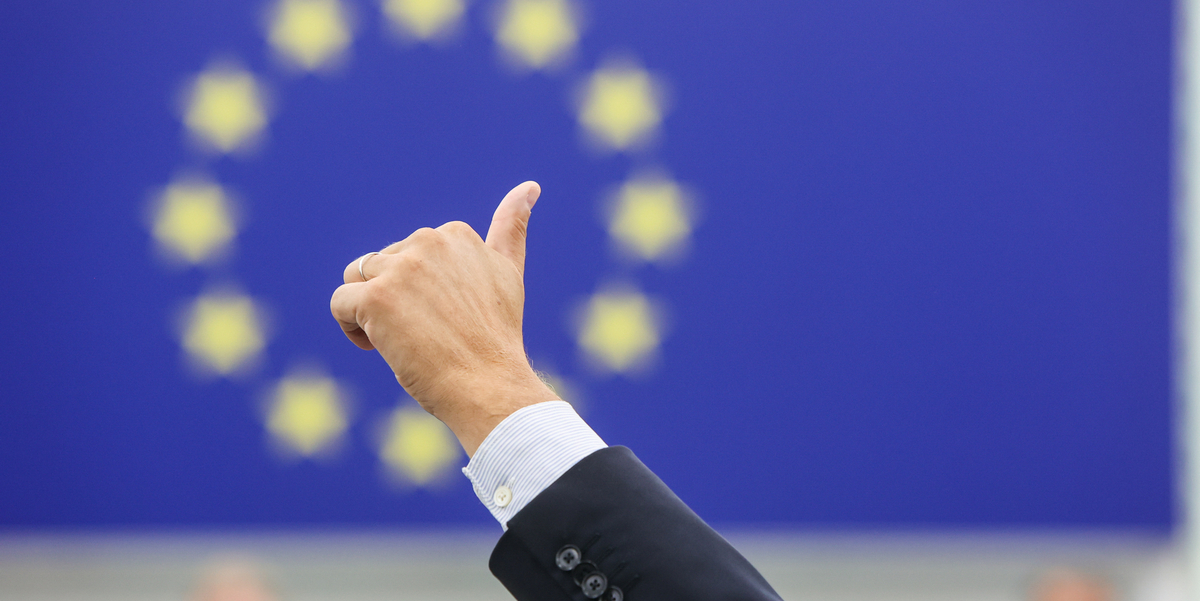The European Parliament has agreed to increase the EU's renewables share of total final energy consumption to 45% by 2030 as part of a revision of the Renewable Energy Directive (RED).
According to the current legislation, the EU is obliged to cover at least 32% of its energy needs from renewable sources by 2030. With the 45% target, the MEPs go beyond the 40% mark decided by the member states in June. The next step is negotiations on the renewables target with the member states.
With 418 favorable votes, 109 unfavorable votes and 111 abstentions, the result was very clear. The conservative EPP, the social democratic S&D, the liberal Renew Europe, and a large part of the Green MPs voted for the new target. The Greens, together with the Left, had previously tried unsuccessfully to win majorities for a target of 55% to 56%.
The parliamentary decision also sets sub-targets for sectors such as transport, buildings and district heating and cooling. In the transport sector, for example, the use of renewable energy should lead to a 16% reduction in greenhouse gas emissions – through a higher proportion of advanced biofuels and a more ambitious quota for renewable fuels of non-biogenic origin, such as hydrogen. Industry is expected to increase its use of renewable energy by 1.9 percentage points per year, and operators of district heating networks by 2.3 points.
Popular content
In addition, each member state should develop two cross-border projects for the expansion of renewables. Member states with annual electricity consumption of more than 100 TWh are called to develop a third project by 2030.
“Only the development of renewable energy means real independence,” said Markus Pieper, German EPP member and rapporteur for the Renewable Energy Directive. “We strongly support the increased target of 45% for 2030. We reiterate the need for greater cross-border cooperation to expand renewable energy deployment and call for a diversified hydrogen import strategy.”
This content is protected by copyright and may not be reused. If you want to cooperate with us and would like to reuse some of our content, please contact: editors@pv-magazine.com.


8 comments
By submitting this form you agree to pv magazine using your data for the purposes of publishing your comment.
Your personal data will only be disclosed or otherwise transmitted to third parties for the purposes of spam filtering or if this is necessary for technical maintenance of the website. Any other transfer to third parties will not take place unless this is justified on the basis of applicable data protection regulations or if pv magazine is legally obliged to do so.
You may revoke this consent at any time with effect for the future, in which case your personal data will be deleted immediately. Otherwise, your data will be deleted if pv magazine has processed your request or the purpose of data storage is fulfilled.
Further information on data privacy can be found in our Data Protection Policy.